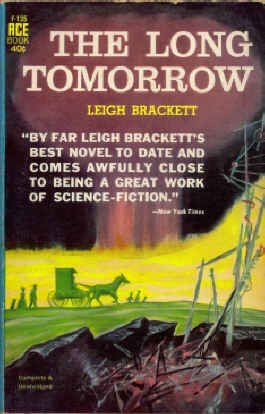I like when a book picks a thesis and sticks to thoroughly exploring it through a personal narrative. The premise of society mostly reverting to a rural one after a nuclear holocaust, with familial and societal roles returning to what they weres some 300 years ago, and the new status quo being enforced by changes to the US Constitution and local religions was both believable and well crafted.
I loved that we got to see the world through an inquisitive, smart protagonist; and that it was set 80 years after the catastrophe, so there still were people alive who remembered the comparative opulence of life before. We are presented a lot of questions that the protagonist poses to himself, explores and tries to come to terms with. Multiple times we see him come to a conclusion or a resolution, only to be thrown off again by new perspectives. But in the end, we don't get any definitive answers. He eventually understands that pretending we can stay in the past forever is futile; but trying to return to the previous state of affairs might end up in disaster again. Which of the two distasteful options do you choose? And will you choose by your gut feelings and desires, or by what you consider a correct extrapolation of potential future developments?
Also props to the author for pulling off a fantastic post-apo book without resorting to any sci-fi elements.
Fave quote:
The cities were sucking all the life of the country into themselves and destroying it. Men were no longer individuals, but units in a vast machine, all cut to one pattern, with the same tastes and ideas, the same mass-produced education that did not educate but only pasted a veneet of catchwords over ignorance. Why do you want to bring that back?”
 🌟🌟🌟🌟🌟
🌟🌟🌟🌟🌟